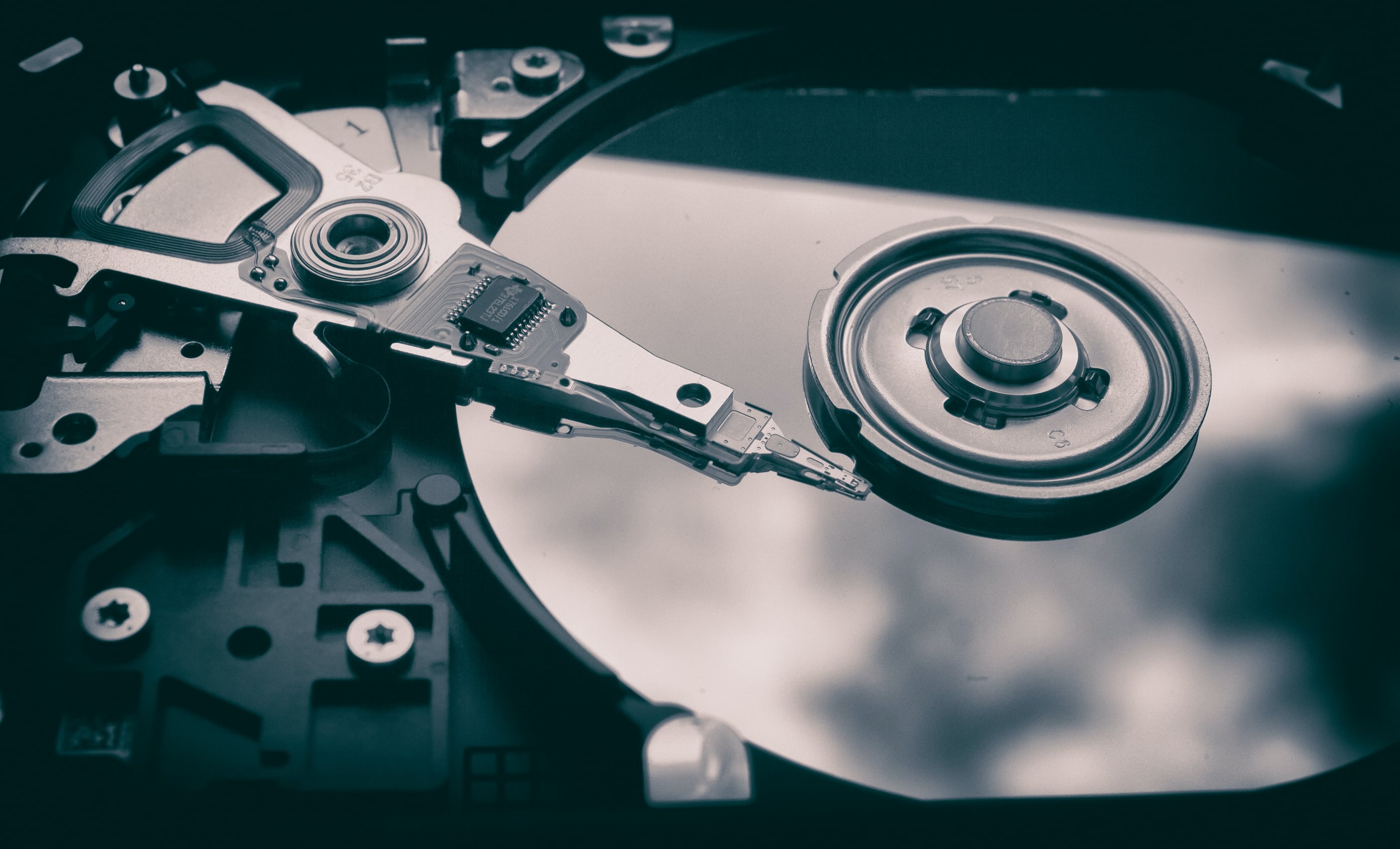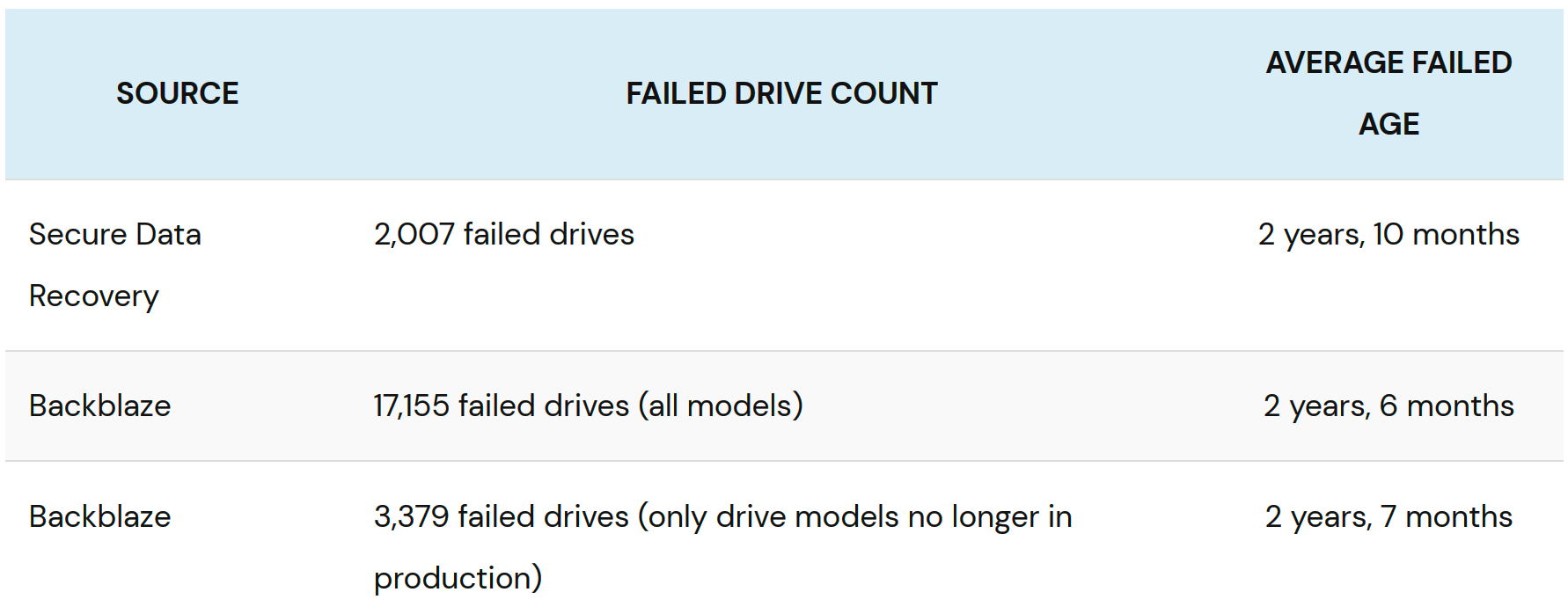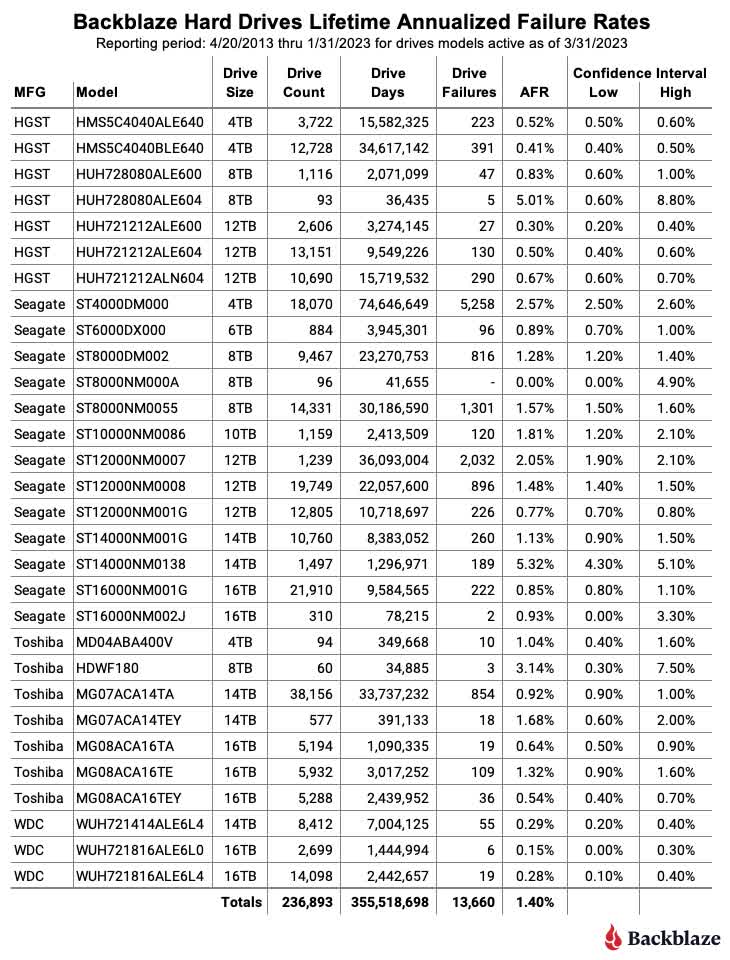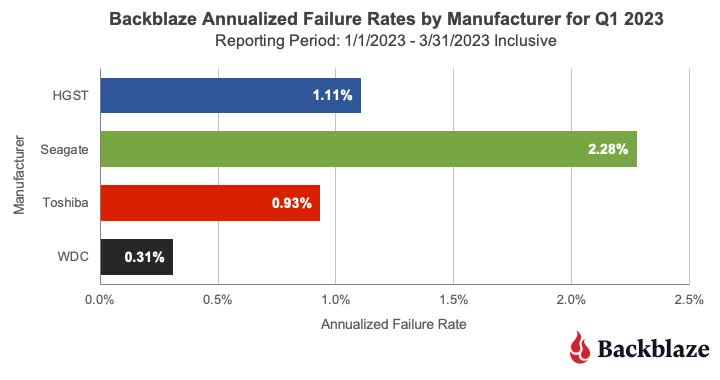In a nutshell: Are you still using a hard disk drive that's coming up to three years old? If so, it might be prudent to make sure your backups are up to date. A new study of 17,155 failed HDDs by Backblaze found that the average age at which these drives borked was two years and six months.

California-based cloud and data backup service Backblaze regularly posts about the reliability of its thousands of storage units – a recent report showed that SSD reliability was only slightly better than HDD.
Part of the company's Q1 2023 drive statistics report looks at hard drive lifetime failure rates. Backblaze analyzed 17,155 failed HDDs covering 72 different models. It did not include failed boot drives, drives that had no SMART raw attribute data, or drives with out-of-bounds data.
Recording the failure date, model, serial number, capacity, failure, and SMART raw value, Backblaze found that the average time the drives failed was after 22,360 hours, which is 932 days, or just over two years and six months.
Backblaze added that if its examinations were limited to drive models no longer operational in its data centers, there would be 35 models consisting of 3,379 drives with a slightly longer average life: two years and seven months.
Backblaze decided to look at HDD failure rates this way after Block & Files published an article based on the work of Timothy Burlee at Secure Data Recovery. It found that of the 2,007 failed hard drives analyzed, the average age at which they failed was 1,051 days, or two years and ten months. Backblaze thought the number was too low, but its own examination found that the failure age was even lower.
The results showed that smaller-capacity drives between 1TB and 4 TB lasted longer than those with higher capacities of 12TB and larger. Backblaze did add a caveat: there are no smaller drives in operation in the data set, while larger drives are still being used. "In other words, as these larger drives continue to fail over the coming months and years, they could increase or decrease the average failure age of that drive model," the post explained.
Backblaze also included its usual table showing all its HDDs lifetime failure rates. After removing those only used for testing purposes or without at least 60 drives, it was left with 236,893 hard drives grouped into 30 different models.
The lifetime Average Failure Rate (AFR) was 1.4%, slightly higher than the previous quarter's 1.39%. Western Digital fared best with an annualized failure rate of 0.31%, while Seagate was last at 2.28%, though Backblaze did previously say that Seagate drives were much cheaper and, therefore, just as cost-effective as expensive HDDs.
https://www.techspot.com/news/98574-backblaze-study-finds-hdds-typically-fail-under-3.html


